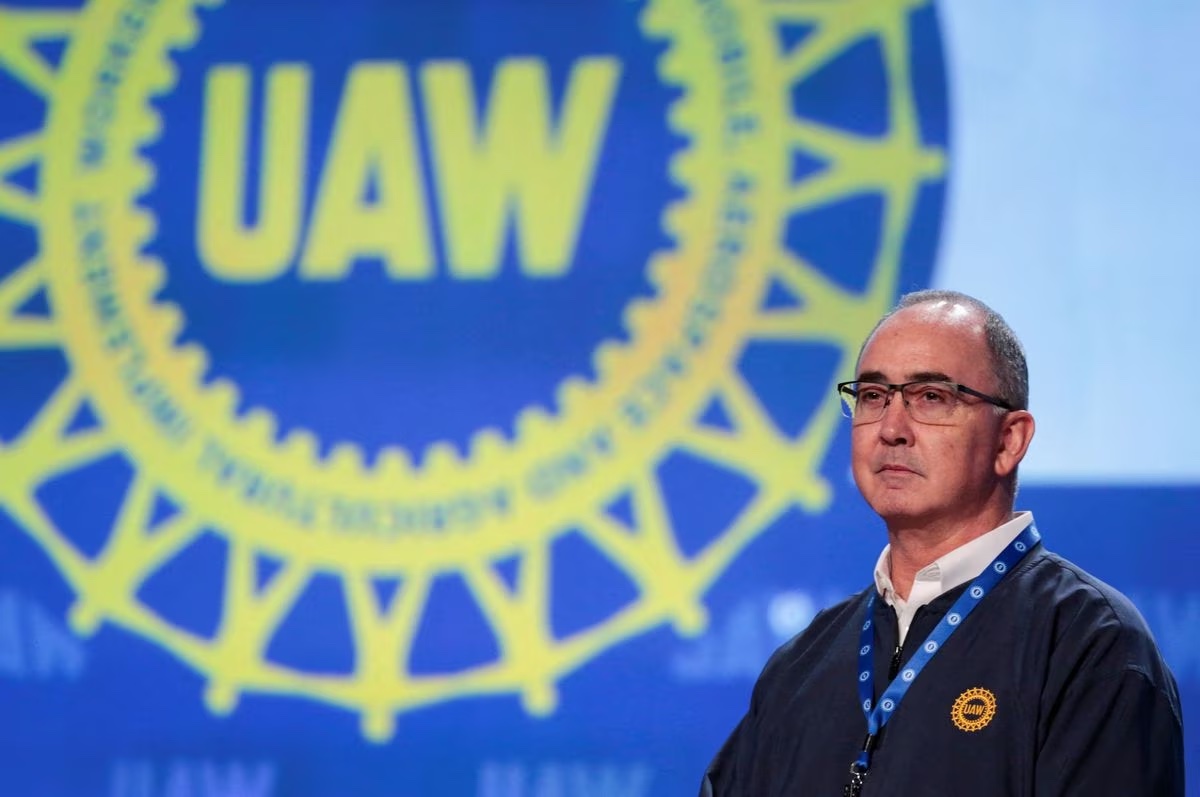DETROIT, May 25 (Reuters) – U.S. trade policy with China and other nations must strike a more equitable balance between needs of workers and corporate profits, leaders of two big U.S. unions said at the Asia Pacific Economic Cooperation trade ministers meeting on Thursday.
“We’re not anti-trade,” United Auto Workers union President Shawn Fain said during a panel discussion led by U.S. Trade Representative Katherine Tai. “We’re anti-trade (when) it’s a one-sided affair.”
Fain said U.S. China trade was not balanced.
“You can send something to China and it costs 10 times what it costs here, and they flood our market with products,” he said
AFL-CIO Secretary-Treasurer Frederick Redmond, who joined Fain and Tai for a discussion of labor’s role in trade policy, said “we don’t expect Ambassador Tai to give one inch to the encroachment of China.”
Tai is expected to meet with China’s Commerce Minister in Detroit, China’s Commerce Ministry said. Tai is hosting the meeting in Detroit in part to showcase the city’s renaissance and rebirth as an electric vehicle production hub.
The impact of trade – and especially trade with China – on U.S. workers is a sensitive issue for the Biden Administration. U.S. President Joe Biden needs the support of unions and union workers in swing states such as Michigan or Wisconsin to win re-election in 2024.
Tai repeated her mantra that the Biden administration has a “worker-centered,” trade approach, adding: “Trade does not have to be hostile to the interests of workers.”
The two union leaders expressed support for the Biden approach, but underscored the role open trade agreements have played in the decline of U.S. industrial unions.
Fain noted the UAW has lost 1 million members since 1980 – a decline he blamed on trade policy.
The unionized Detroit Three automakers have lost market share to imported vehicles and have moved production to Mexico under the North American trade deal. But they have also lost share to non-union U.S. auto factories run by German, Japanese and South Korean automakers.
Automation and lean manufacturing also have reduced the number of workers needed to build a vehicle.
“We need trade agreements that have strong labor standards, strong environmental standards,” Redmond said.









